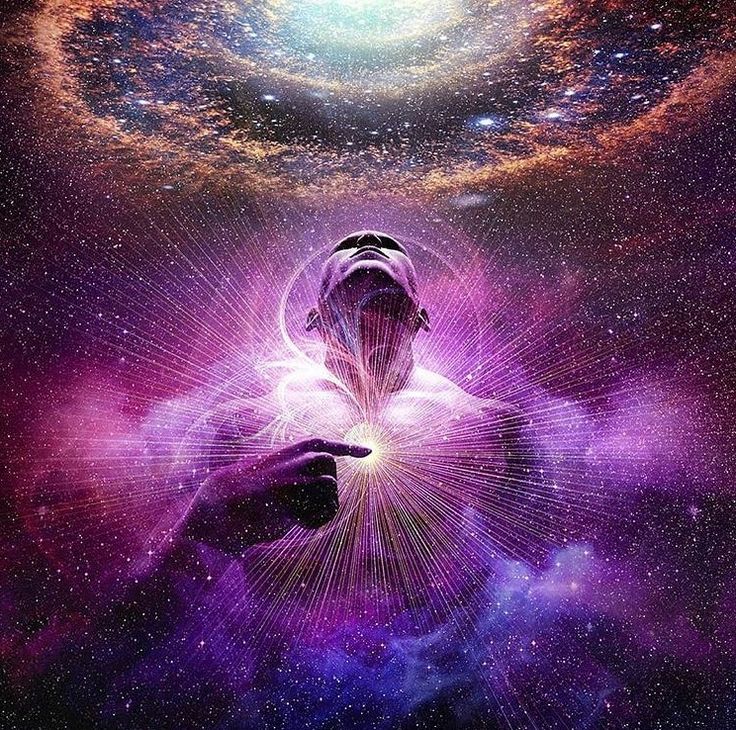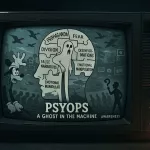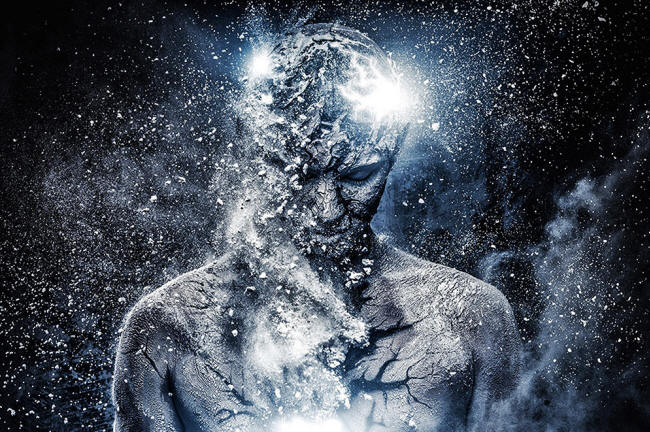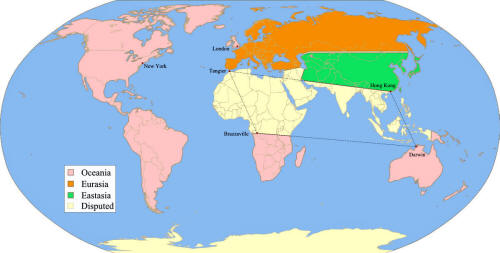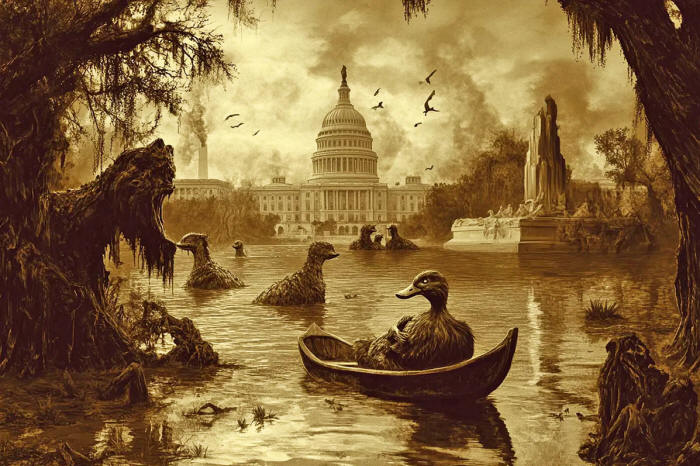Covid changed everything.
by Paul Levy
January 16, 2021
from AwakenInTheDream Website
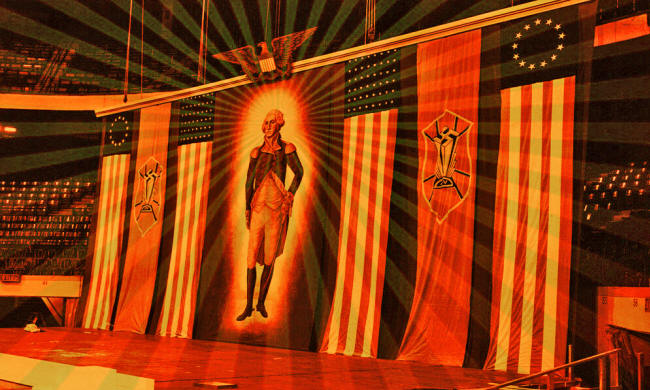
It should get our attention that every person or group of people that have discovered what the Native Americans call Wetiko disease unanimously consider it to be the most important topic – it’s been called “the topic of topics” – to understand in our world today.
Wetiko psychosis – which can be conceived of as being a mind-virus – is at the very root of every crisis we face:
- climate change (and our lack of response and confusion around the issue)
- the threat of nuclear war
- social injustice
- political malfeasance
- the threat of fascism
- financial corruption
- endless war, etc.
Called by many different names throughout history, the spirit of Wetiko renders every other issue secondary, for Wetiko is,
the over-arching umbrella that contains, subsumes, informs and underlies every form of self-and-other destruction that our species is acting out in our world on every scale…
If we don’t come to terms with what Wetiko is revealing to us, however, nothing else will matter, as there will be no more human species.
The great doctor of the soul C.G. Jung was totally tracking Wetiko (just not having the indigenous name), referring to it as,
“the totalitarian psychosis”…
Being that totalitarian forces are creeping all over the world, it greatly behooves us to shed light on this totalitarian psychosis that is at the root of this process in the world.
A form of psychic blindness,
Wetiko is a psycho-spiritual disease that works through the blind spots of the unconscious and the projective tendencies of the mind so as to hypnotize us via our mind’s own creative power to shape reality.
This mind-virus only has power over us to the extent it is not seen, however, which is to say that the way to heal it is,
to see how it operates, both out in the world and within our own mind…
Not constrained by the conventional laws of third-dimensional space and time, Wetiko is nonlocal.
It is an inner disease of the soul that discloses itself through the canvas of the outside world.
Wetiko has the magical ability to extend itself out into the world and seemingly configure outer events so as to express itself and give itself living material form.
In other words, Wetiko doesn’t just play itself out within our minds, but through influencing our unconscious and its reactions, manages to act itself out writ large – in full-bodied form – in the world.
This is to say that what is happening in the world – just like a dream – is a reflection of a process happening deep within the psyche.
Through this magical ability to express itself through the medium of the outside world, Wetiko is simultaneously hiding and revealing itself at the same time, depending on our point of view and level of awareness.
We can better understand wetiko’s covert psy-ops,
by reflecting upon how this mind-virus works within an individual psyche, and recognize how this inner process is being mirrored and acted out in the world.
When someone is taken over by the Wetiko mind-virus, it is as if an alien, invading power gradually subsumes all of the healthy parts of the body politic and commandeers the executive function of the psyche so as to fulfill its own agenda, which is why the person taken over oftentimes acts in ways that are diametrically opposed to their own best interests.
In a psychic coup d’état, the Wetiko bug can,
usurp and supplant a person, who becomes its puppet and marionette…
Once the Wetiko virus becomes sufficiently entrenched within a human psyche, the prime directive coordinating a person’s behavior comes from the disease, as it is now the one in the driver’s seat.
As Wetiko colonizes the psyche – centralizing power and control in the process – it eventually incorporates a seemingly autonomous regime that establishes a brutal hegemony over the healthy parts of the personality and becomes a parasitic autocracy within the greater body politic of the psyche.
Once it gains a sufficient sovereignty, Wetiko forms something like a totalitarian regime – what Jung calls “a shadow-government of the ego” – within the psyche which then dictates to the ego.
This is why Jung, when referring to Wetiko, calls it the,
“totalitarian psychosis“…
The internal landscape of the wetikoized psyche is mirrored in the external world through the totalitarian forces with its corresponding “shadow government” that comes along with it – with the ever-increasing centralization of power and control – that has infiltrated our democracy and is insidiously extending itself all over the globe.
Both within our psyche – and in our alleged democracy – we are allowed our seeming freedom, but only so long as it doesn’t threaten the sovereignty and dominance of the archonic “ruling” power.
An expression of its proclivity for wanting to usurp the executive function of any living system it inhabits,
the word “archon” (the Gnostic term for Wetiko) etymologically speaking, means “ruler”…
Unless we are lost in denial, it is clear that we are living at a time in which totalitarian forces (though in its less familiar form of “soft totalitarianism”) have re-emerged onto the political landscape.
To quote Henry A. Wallace, Vice-President under Franklin Delano Roosevelt,
“Fascism is a worldwide disease”
(Notice the similarity to psychologist William James’ words, “Evil is a disease”)…
There is something about the disease metaphor that so precisely maps onto what is actually happening in our world that indicates that it is not mere metaphor.
Mainstream media has even been using the term “The Authoritarianism Virus” to point to,
the trend towards totalitarianism that is happening both in the United States and around the world…
In a nation – and world – trending towards totalitarianism, it gets harder and harder to discern truth from fiction.
The disease of totalitarianism can only flourish when the boundary between fact and fiction make people lose their ability to perceive reality.
The collapse of the distinction between truth and lies greases the skids for a totalitarian occupation of consciousness.
A totalitarian regime is not merely an external situation, but can only take place if it has a corresponding internal referent within the psyche.
A totalitarian state depends upon, psychologically speaking, people being coerced into lying to themselves, which invariably results in becoming inauthentic, out of integrity with their very souls – and hence, disconnected from their true creative power.
Fascism’s “greatest threat to the United States,” to again quote Wallace, will manifest,
“within
the United Statesitself”…
In other words, the greatest threat to our democracy will not come from external forces, but from forces originating within our own body politic.
This is a mirrored reflection of how the greatest threat from Wetiko disease – the totalitarian psychosis that threatens us all – is not from outside, but arises within our own psyche.
“The totalitarian psychosis,” Jung writes, is “forcing us to pay attention to the psyche and our abysmal unconsciousness of it.”
If we don’t realize that our current world crisis – with its trend towards totalitarianism – has its roots within and is an expression of a process going on deep within the human psyche (which is to say, within each one of us), we will be doomed to unknowingly offer ourselves into its sinister hands.
As if having a recurring dream, our totalitarian nightmare will then endlessly amplify itself in more and more terrifying forms, until we receive the message it is freely offering us.
We need to recognize that,
the totalitarian forces emerging in our world are reflecting – and both literally and symbolically revealing – to us, shadow components of our own psyche, while at the same time, in a nonlinear,acausal process(acausal coincidences or
syncronicities) that happens both atemporally (outside of time) and over (linear) time, are in-formed and influenced by the very inner psychological process they are reflecting.
This is to realize that the inner and outer are simultaneously co-arising and reciprocally co-evoking each other.
Recognizing this correlation and instantaneous reflective quality between the seemingly disparate outer and inner worlds opens up a pathway within us which expands our consciousness and helps us to wake up to the dreamlike nature of reality.
This realization unlocks previously unimaginable “creative” (in contrast to “destructive”) powers within us that we didn’t know we had.
This is the very process that dispels Wetiko’s hold over us, putting in our own hands the very creativity-generating tools we need to start to dismantle the totalitarian psychosis within our world.
by Academy of Ideas
April 24, 2021
from AcademyOfIdeas Website
| Academy of Ideas is the creation of two brothers from Canada. All of the content is produced by us. We are not supported by or affiliated with any organization or university. Our goal is to to spread the message of individual liberty and empowerment to the world. |

The following is a transcript, of video at footnote:
“The masses have never thirsted after truth.
They turn aside from evidence that is not to their taste, preferring to deify error, if error seduce them. Whoever can supply them with illusions is easily their master; whoever attempts to destroy their illusions is always their victim.”
Gustav Le Bon
Diseases of the body can spread through a population and reach epidemic proportions, but so too can diseases of the mind.
And of these epidemics of the latter variety, the mass psychosis is the most dangerous.
During a mass psychosis madness becomes the norm in a society and delusionary beliefs spread like a contagion.
But as delusions can take many forms, and as madness can manifest in countless ways, the specific manner in which a mass psychosis unfolds will differ based on the historical and cultural context of the infected society.
In the past, mass psychoses have led to,
- witch hunts
- genocides
- even dancing manias,
…but in the modern era it is the mass psychosis of totalitarianism that is the greatest threat:
“Totalitarianism is the modern phenomenon of total centralized state power coupled with the obliteration of individual human rights:
in the totalized state, there are those in power, and there are the objectified masses, the victims.”
Arthur Versluis
The New Inquisitions – Heretic-Hunting and the Intellectual Origins of Modern Totalitarianism
In a totalitarian society the population is divided into two groups,
the rulers and the ruled,
…and both groups undergo a pathological transformation.
The rulers are elevated to an almost god-like status which is diametrically opposed to our nature as imperfect beings who are easily corrupted by power.
The masses, on the other hand, are transformed into the dependent subjects of these pathological rulers and take on a psychologically regressed and childlike status.
Hannah Arendt, one of the 20th century’s preeminent scholars of this form of rule, called totalitarianism,
an attempted transformation of “human nature itself”…
But this attempted transformation only turns sound minds into sick minds for as the Dutch medical doctor who studied the mental effects of living under totalitarianism wrote:
“…there is in fact much that is comparable between the strange reactions of the citizens of [totalitarianism] and their culture as a whole on the one hand and the reactions of the… sick schizophrenic on the other.”
Joost Meerloo
The Rape of the Mind – The Psychology of Thought Control, Menticide, and Brainwashing
The social transformation that unfolds under totalitarianism is built upon, and sustained by, delusions…
For only deluded men and women regress to the childlike status of obedient and submissive subjects and hand over complete control of their lives to politicians and bureaucrats.
Only a deluded ruling class will believe that they possess the knowledge, wisdom, and acumen to completely control society in a top-down manner.
And only when under the spell of delusions would anyone believe that a society composed of power-hungry rulers, on the one hand, and a psychological regressed population, on the other, will lead to anything other than mass suffering and social ruin.
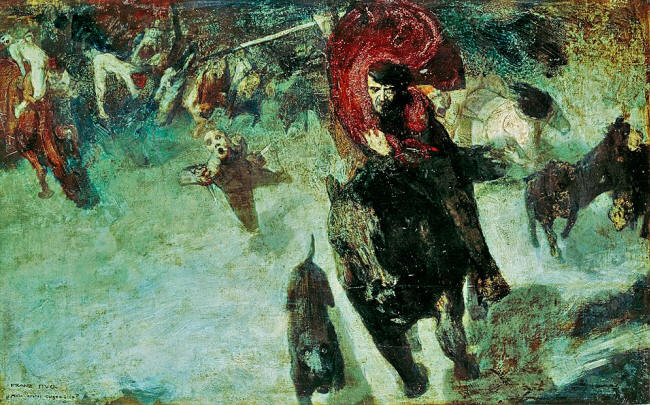
But what triggers the psychosis of totalitarianism?
As was explored in a previous video of this series, the mass psychosis of totalitarianism begins in a society’s ruling class.
The individuals that make up this class, be it politicians, bureaucrats, or crony capitalists, are very prone to delusions that augment their power, and no delusion is more attractive to the power-hungry, than the delusion that they can, and should, control and dominate a society.
When a ruling elite becomes possessed by a political ideology of this sort, be it communism, fascism or technocracy, the next step is,
to induce a population into accepting their rule by infecting them with the mass psychosis of totalitarianism…
This psychosis has been induced many times throughout history, and as Joost Meerloo explains:
“It is simply a question of reorganizing and manipulating collective feelings in the proper way.”
Joost Meerloo
The Rape of the Mind – The Psychology of Thought Control, Menticide, and Brainwashing
The general method by which the members of a ruling elite can accomplish this end is called menticide, with the etymology of this word being ‘a killing of the mind’, and as Meerloo further explains:
“Menticide is an old crime against the human mind and spirit but systematized anew.
It is an organized system of psychological intervention and judicial perversion through which a [ruling class] can imprint [their] own opportunistic thoughts upon the minds of those [they] plan to use and destroy.”
Joost Meerloo
The Rape of the Mind – The Psychology of Thought Control, Menticide, and Brainwashing
Priming a population for the crime of menticide begins with the sowing of fear…
For as was explored in the first video of this series, when an individual is flooded with negative emotions, such as fear or anxiety, he or she is very susceptible to a descent into the delusions of madness.
Threats real, imagined, or fabricated can be used to sow fear, but a particularly effective technique is to use waves of terror…
Under this technique the sowing of fear is staggered with periods of calm, but each of these periods of calm is followed by the manufacturing of an even more intense spell of fear, and on and on the process goes, or as Meerloo writes:
“Each wave of terrorizing… creates its effects more easily – after a breathing spell – than the one that preceded it because people are still disturbed by their previous experience.
Morality becomes lower and lower, and the psychological effects of each new propaganda campaign become stronger; it reaches a public already softened up.”
Joost Meerloo
The Rape of the Mind – The Psychology of Thought Control, Menticide, and Brainwashing
While fear primes a population for menticide (brainwashing), the use of propaganda to spread misinformation and to promote confusion with respect to the source of the threats, and the nature of the crisis, helps to break down the minds of the masses.
Government officials, and their lackies in the media, can use,
- contradictory reports
- non-sensical information
- even blatant lies,
…as the more they confuse the less capable will a population be to cope with the crisis, and diminish their fear, in a rational and adaptive manner.
Confusion, in other words, heightens the susceptibility of a descent into the delusions of totalitarianism, or as Meerloo explains:
“Logic can be met with logic, while illogic cannot – it confuses those who think straight. The Big Lie and monotonously repeated nonsense have more emotional appeal… than logic and reason.
While [the people are] still searching for a reasonable counter-argument to the first lie, the totalitarians can assault [them] with another.”
Joost Meerloo
The Rape of the Mind – The Psychology of Thought Control, Menticide, and Brainwashing
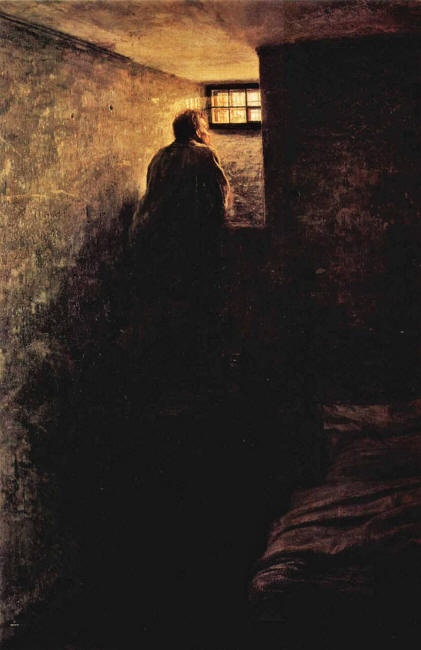
Never before in history have such effective means existed to manipulate a society into the psychosis of totalitarianism.
Smart phones and social media, television and the internet, all in conjunction with algorithms that quickly censor the flow of unwanted information, allow those in power to easily assault the minds of the masses.
What is more the addictive nature of these technologies means that many people voluntarily subject themselves to the ruling elite‘s propaganda with a remarkable frequency:
“Modern technology teaches man to take for granted the world he is looking at; he takes no time to retreat and reflect. Technology lures him on, dropping him into its wheels and movements.
No rest, no meditation, no reflection, no conversation – the senses are continually overloaded with stimuli.
[Man] doesn’t learn to question his world anymore; the screen offers him answers-ready-made.”
Joost Meerloo
The Rape of the Mind – The Psychology of Thought Control, Menticide, and Brainwashing
But there is a further step the would-be totalitarian rulers can take to increase the chance of a totalitarian psychosis, and this is,
to
isolate the victimsand to disrupt normal social interactions…
When alone and lacking normal interactions with friends, family and coworkers, an individual becomes far more susceptible to delusions for several reasons:
Firstly, they lose contact with the corrective force of the positive example.
For not everyone is tricked by the machinations of the ruling elite and the individuals who see through the propaganda, can help free others from the menticidal assault.
If, however, isolation is enforced the power of these positive examples greatly diminishes.
But another reason that isolation increases the efficacy of menticide is because like many other species, human beings, are more easily conditioned into new patterns of thought and behavior when isolated, or as Meerloo explains with regards to the physiologist Ivan Pavlov‘s work on behavioral conditioning:
“Pavlov made another significant discovery:
the conditioned reflex could be developed most easily in a quiet laboratory with a minimum of disturbing stimuli.
Every trainer of animals knows this from his own experience; isolation and the patient repetition of stimuli are required to tame wild animals…
The totalitarians have followed this rule.
They know that they can condition their political victims most quickly if they are kept in isolation.”
Joost Meerloo
The Rape of the Mind – The Psychology of Thought Control, Menticide, and Brainwashing
Alone, confused and battered by waves of terror, a population under an attack of menticide descends into a hopeless and vulnerable state.
The never-ending stream of propaganda turns minds once capable of rational thought into playhouses of irrational forces and with chaos swirling around them, and within them, the masses crave a return to a more ordered world.
The would-be totalitarians can now take the decisive step:
they can offer a way out and a return to order in a world that seems to be moving rapidly in the opposite direction…
But all this come at a price:
The masses mustgive up their freedom and cede control of all aspects of life to the ruling elite...
They must relinquish their capacity to be self-reliant individuals who are responsible for their own lives, and become submissive and obedient subjects.
The masses, in other words, must descend into the delusions of the totalitarian psychosis.
“Totalitarianism is man’s escape from the fearful realities of life into the virtual womb of the leaders.
The individual’s actions are directed from this womb – from the inner sanctum… man need no longer assume responsibility for his own life.
The order and logic of the prenatal world reign.
There is peace and silence, the peace of utter submission.”
Joost Meerloo
The Rape of the Mind – The Psychology of Thought Control, Menticide, and Brainwashing
But the order of a totalitarian world is a pathological order.
By enforcing a strict conformity, and requiring a blind obedience from the citizenry, totalitarianism rids the world of the spontaneity that produces many of life’s joys and the creativity that drives society forward.
The total control of this form of rule, no matter under what name it is branded, be it rule by scientists and doctors, politicians and bureaucrats, or a dictator, breeds stagnation, destruction and death on a mass scale…
And so perhaps the most important question facing the world is, how can totalitarianism be prevented?
And if a society has been induced into the early stages of this mass psychosis, can the effects be reversed?
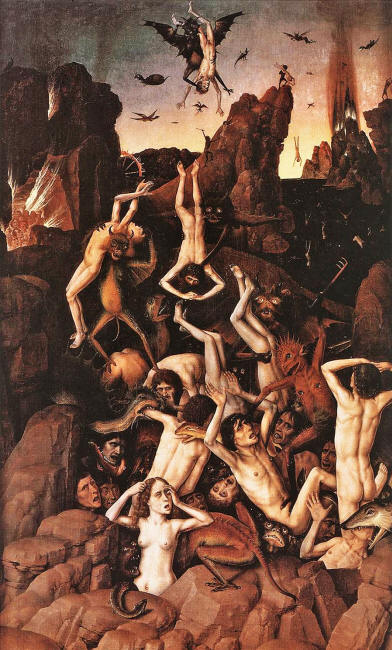
While one can never be sure of the prognosis of a collective madness, there are steps that can be taken to help effectuate a cure.
This task, however, necessitates many different approaches, from many different people.
For just as the menticidal attack is multi-pronged, so too must be the counter-attack…
According to Carl Jung, for those of us who wish to help return sanity to an insane world, the first step is to,
- bring order to our own minds
- live in a way that provides inspiration for others to follow
“It is not for nothing that our age cries out for the redeemer personality, for the one who can emancipate himself from the grip of the collective [psychosis] and save at least his own soul, who lights a beacon of hope for others, proclaiming that here is at least one man who has succeeded in extricating himself from the fatal identity with the group psyche.”
Carl Jung
But assuming one is living in a manner free of the grip of the psychosis there are further steps that can be taken:
firstly, information that counters the propaganda should be spread as far, and as wide, as possible.
For the truth is more powerful than the fiction and falsities peddled by the would-be totalitarian rulers and so their success is in part contingent on their ability to censor the free flow of information.
Another tactic is to use humor and ridicule to delegitimize the ruling elite or as Meerloo explains:
“We must learn to treat the demagogue and aspirant dictators in our midst… with the weapon of ridicule.
The demagogue himself is almost incapable of humor of any sort, and if we treat him with humor, he will begin to collapse.”
Joost Meerloo
The Rape of the Mind – The Psychology of Thought Control, Menticide, and Brainwashing
A tactic recommended by Vaclav Havel, a political dissident under Soviet communist rule who later became president of Czechoslovakia, is,
the construction of what are called “parallel structures”…
A parallel structure is,
any form of organization, business, institution, technology, or creative pursuit,
…that exists physically within a totalitarian society, yet morally outside of it..
In communist Czechoslovakia, Havel noted that these parallel structures were more effective at combating totalitarianism than political action.
Furthermore, when enough parallel structures are created, a “second culture” or “parallel society” spontaneously forms and functions as an enclave of freedom and sanity within a totalitarian world.
Or as Havel explains in his book The Power of the Powerless:
“… what else are parallel structures than an area where a different life can be lived, a life that is in harmony with its own aims and which in turn structures itself in harmony with those aims? …
What else are those initial attempts at social self-organization than the efforts of a certain part of society… to rid itself of the self-sustaining aspects of totalitarianism and, thus, to extricate itself radically from its involvement in the… totalitarian system?”
Vaclav Havel
But above all else what is required to prevent a full descent into the madness of totalitarianism is,
action by as many people as possible…
For just as the ruling elite do not sit around passively, but instead take deliberate steps to increase their power, so too an active and concerted effort must be made to move the world back in the direction of freedom.
This can be an immense challenge in a world falling prey to the delusions of totalitarianism, but as Thomas Paine noted:
“Tyranny, like hell, is not easily conquered; yet we have this consolation with us, that the harder the conflict the more glorious the triumph.”
Thomas Paine

extracted from ‘1984’ by George Orwell
published in 1949
from ProjectGutenbergAustralia Website
| ‘The Theory and Practice of Oligarchical Collectivism‘ by ‘Emmanuel Goldstein‘, is the fictional book that is a thematic and plot element integral to the dystopian novel, Nineteen Eighty-Four (1984) by George Orwell – Was this “science fiction” article written in 1949 or in 1999…? – |
Chapter IIIWar is Peace
The splitting up of the world into three great super-states was an event which could be and indeed was foreseen before the middle of the twentieth century.
With the absorption of Europe by Russia and of the British Empire by the United States, two of the three existing powers, Eurasia and Oceania, were already effectively in being.
The third, Eastasia, only emerged as a distinct unit after another decade of confused fighting.
The frontiers between the three super-states are in some places arbitrary, and in others they fluctuate according to the fortunes of war, but in general they follow geographical lines.
- Eurasia comprises the whole of the northern part of the European and Asiatic land-mass, from Portugal to the Bering Strait.
- Oceania comprises the Americas, the Atlantic islands including the British Isles, Australasia, and the southern portion of Africa.
- Eastasia, smaller than the others and with a less definite western frontier, comprises China and the countries to the south of it, the Japanese islands and a large but fluctuating portion of Manchuria, Mongolia, and Tibet.
In one combination or another, these three super-states are permanently at war, and have been so for the past twenty-five years.
War, however, is no longer the desperate, annihilating struggle that it was in the early decades of the twentieth century. It is a warfare of limited aims between combatants who are unable to destroy one another, have no material cause for fighting and are not divided by any genuine ideological difference.
This is not to say that either the conduct of war, or the prevailing attitude towards it, has become less bloodthirsty or more chivalrous.
On the contrary, war hysteria is continuous and universal in all countries, and such acts as raping, looting, the slaughter of children, the reduction of whole populations to slavery, and reprisals against prisoners which extend even to boiling and burying alive, are looked upon as normal, and, when they are committed by one’s own side and not by the enemy, meritorious.
But in a physical sense war involves very small numbers of people, mostly highly-trained specialists, and causes comparatively few casualties.
The fighting, when there is any, takes place on the vague frontiers whose whereabouts the average man can only guess at, or round the Floating Fortresses which guard strategic spots on the sea lanes. In the centers of civilization war means no more than a continuous shortage of consumption goods, and the occasional crash of a rocket bomb which may cause a few scores of deaths.
War has in fact changed its character.
More exactly, the reasons for which war is waged have changed in their order of importance. Motives which were already present to some small extent in the great wars of the early twentieth century have now become dominant and are consciously recognized and acted upon.
To understand the nature of the present war – for in spite of the regrouping which occurs every few years, it is always the same war – one must realize in the first place that it is impossible for it to be decisive. None of the three super-states could be definitively conquered even by the other two in combination.
They are too evenly matched, and their natural defenses are too formidable. Eurasia is protected by its vast land spaces, Oceania by the width of the Atlantic and the Pacific, Eastasia by the fecundity and industriousness of its inhabitants. Secondly, there is no longer, in a material sense, anything to fight about.
With the establishment of self-contained economies, in which production and consumption are geared to one another, the scramble for markets which was a main cause of previous wars has come to an end, while the competition for raw materials is no longer a matter of life and death. In any case each of the three super-states is so vast that it can obtain almost all the materials that it needs within its own boundaries.
In so far as the war has a direct economic purpose, it is a war for labour power.
Between the frontiers of the super-states, and not permanently in the possession of any of them, there lies a rough quadrilateral with its corners at Tangier, Brazzaville, Darwin, and Hong Kong, containing within it about a fifth of the population of the earth. It is for the possession of these thickly-populated regions, and of the northern ice-cap, that the three powers are constantly struggling.
In practice no one power ever controls the whole of the disputed area. Portions of it are constantly changing hands, and it is the chance of seizing this or that fragment by a sudden stroke of treachery that dictates the endless changes of alignment.
All of the disputed territories contain valuable minerals, and some of them yield important vegetable products such as rubber which in colder climates it is necessary to synthesize by comparatively expensive methods.
But above all they contain a bottomless reserve of cheap labour.
Whichever power controls equatorial Africa, or the countries of the Middle East, or Southern India, or the Indonesian Archipelago, disposes also of the bodies of scores or hundreds of millions of ill-paid and hard-working coolies.
The inhabitants of these areas, reduced more or less openly to the status of slaves, pass continually from conqueror to conqueror, and are expended like so much coal or oil in the race to turn out more armaments, to capture more territory, to control more labour power, to turn out more armaments, to capture more territory, and so on indefinitely. It should be noted that the fighting never really moves beyond the edges of the disputed areas.
The frontiers of Eurasia flow back and forth between the basin of the Congo and the northern shore of the Mediterranean; the islands of the Indian Ocean and the Pacific are constantly being captured and recaptured by Oceania or by Eastasia; in Mongolia the dividing line between Eurasia and Eastasia is never stable; round the Pole all three powers lay claim to enormous territories which in fact are largely uninhabited and unexplored: but the balance of power always remains roughly even, and the territory which forms the heartland of each super-state always remains inviolate.
Moreover, the labour of the exploited peoples round the Equator is not really necessary to the world’s economy. They add nothing to the wealth of the world, since whatever they produce is used for purposes of war, and the object of waging a war is always to be in a better position in which to wage another war.
By their labour the slave populations allow the tempo of continuous warfare to be speeded up. But if they did not exist, the structure of world society, and the process by which it maintains itself, would not be essentially different.
The primary aim of modern warfare (in accordance with the principles of
DOUBLETHINK, this aim is simultaneously recognized and not recognized by the directing brains of the Inner Party) is to use up the products of the machine without raising the general standard of living.
Ever since the end of the nineteenth century, the problem of what to do with the surplus of consumption goods has been latent in industrial society. At present, when few human beings even have enough to eat, this problem is obviously not urgent, and it might not have become so, even if no artificial processes of destruction had been at work.
The world of today is a bare, hungry, dilapidated place compared with the world that existed before 1914, and still more so if compared with the imaginary future to which the people of that period looked forward. In the early twentieth century, the vision of a future society unbelievably rich, leisured, orderly, and efficient – a glittering antiseptic world of glass and steel and snow-white concrete – was part of the consciousness of nearly every literate person.
Science and technology were developing at a prodigious speed, and it seemed natural to assume that they would go on developing. This failed to happen, partly because of the impoverishment caused by a long series of wars and revolutions, partly because scientific and technical progress depended on the empirical habit of thought, which could not survive in a strictly regimented society.
As a whole the world is more primitive today than it was fifty years ago. Certain backward areas have advanced, and various devices, always in some way connected with warfare and police espionage, have been developed, but experiment and invention have largely stopped, and the ravages of the atomic war of the nineteen-fifties have never been fully repaired. Nevertheless the dangers inherent in the machine are still there.
From the moment when the machine first made its appearance it was clear to all thinking people that the need for human drudgery, and therefore to a great extent for human inequality, had disappeared. If the machine were used deliberately for that end, hunger, overwork, dirt, illiteracy, and disease could be eliminated within a few generations.
And in fact, without being used for any such purpose, but by a sort of automatic process – by producing wealth which it was sometimes impossible not to distribute – the machine did raise the living standards of the average human being very greatly over a period of about fifty years at the end of the nineteenth and the beginning of the twentieth centuries.
But it was also clear that an all-round increase in wealth threatened the destruction – indeed, in some sense was the destruction – of a hierarchical society. In a world in which everyone worked short hours, had enough to eat, lived in a house with a bathroom and a refrigerator, and possessed a motor-car or even an airplane, the most obvious and perhaps the most important form of inequality would already have disappeared. If it once became general, wealth would confer no distinction.
It was possible, no doubt, to imagine a society in which WEALTH, in the sense of personal possessions and luxuries, should be evenly distributed, while POWER remained in the hands of a small privileged caste.
But in practice such a society could not long remain stable.
For if leisure and security were enjoyed by all alike, the great mass of human beings who are normally stupefied by poverty would become literate and would learn to think for themselves; and when once they had done this, they would sooner or later realize that the privileged minority had no function, and they would sweep it away. In the long run, a hierarchical society was only possible on a basis of poverty and ignorance.
To return to the agricultural past, as some thinkers about the beginning of the twentieth century dreamed of doing, was not a practicable solution.
It conflicted with the tendency towards mechanization which had become quasi-instinctive throughout almost the whole world, and moreover, any country which remained industrially backward was helpless in a military sense and was bound to be dominated, directly or indirectly, by its more advanced rivals.
Nor was it a satisfactory solution to keep the masses in poverty by restricting the output of goods. This happened to a great extent during the final phase of capitalism, roughly between 1920 and 1940. The economy of many countries was allowed to stagnate, land went out of cultivation, capital equipment was not added to, great blocks of the population were prevented from working and kept half alive by State charity.
But this, too, entailed military weakness, and since the privations it inflicted were obviously unnecessary, it made opposition inevitable. The problem was how to keep the wheels of industry turning without increasing the real wealth of the world.
Goods must be produced, but they must not be distributed. And in practice the only way of achieving this was by continuous warfare.
The essential act of war is destruction, not necessarily of human lives, but of the products of human labour. War is a way of shattering to pieces, or pouring into the stratosphere, or sinking in the depths of the sea, materials which might otherwise be used to make the masses too comfortable, and hence, in the long run, too intelligent.
Even when weapons of war are not actually destroyed, their manufacture is still a convenient way of expending labour power without producing anything that can be consumed. A Floating Fortress, for example, has locked up in it the labour that would build several hundred cargo-ships.
Ultimately it is scrapped as obsolete, never having brought any material benefit to anybody, and with further enormous labours another Floating Fortress is built.
In principle the war effort is always so planned as to eat up any surplus that might exist after meeting the bare needs of the population. In practice the needs of the population are always underestimated, with the result that there is a chronic shortage of half the necessities of life; but this is looked on as an advantage. It is deliberate policy to keep even the favored groups somewhere near the brink of hardship, because a general state of scarcity increases the importance of small privileges and thus magnifies the distinction between one group and another.
By the standards of the early twentieth century, even a member of
the Inner Partylives an austere, laborious kind of life. Nevertheless, the few luxuries that he does enjoy his large, well-appointed flat, the better texture of his clothes, the better quality of his food and drink and tobacco, his two or three servants, his private motor-car or helicopter – set him in a different world from a member of the Outer Party, and the members of the Outer Party have a similar advantage in comparison with the submerged masses whom we call ‘the proles’.
The social atmosphere is that of a besieged city, where the possession of a lump of horseflesh makes the difference between wealth and poverty. And at the same time the consciousness of being at war, and therefore in danger, makes the handing-over of all power to a small caste seem the natural, unavoidable condition of survival.
War, it will be seen, accomplishes the necessary destruction, but accomplishes it in a psychologically acceptable way. In principle it would be quite simple to waste the surplus labour of the world by building temples and pyramids, by digging holes and filling them up again, or even by producing vast quantities of goods and then setting fire to them.
But this would provide only the economic and not the emotional basis for a hierarchical society. What is concerned here is not the morale of masses, whose attitude is unimportant so long as they are kept steadily at work, but the morale of the Party itself. Even the humblest Party member is expected to be competent, industrious, and even intelligent within narrow limits, but it is also necessary that he should be a credulous and ignorant fanatic whose prevailing moods are fear, hatred, adulation, and orgiastic triumph. In other words it is necessary that he should have the mentality appropriate to a state of war.
It does not matter whether the war is actually happening, and, since no decisive victory is possible, it does not matter whether the war is going well or badly. All that is needed is that a state of war should exist.
The splitting of the intelligence which the Party requires of its members, and which is more easily achieved in an atmosphere of war, is now almost universal, but the higher up the ranks one goes, the more marked it becomes. It is precisely in the Inner Party that war hysteria and hatred of the enemy are strongest.
In his capacity as an administrator, it is often necessary for a member of the Inner Party to know that this or that item of war news is untruthful, and he may often be aware that the entire war is spurious and is either not happening or is being waged for purposes quite other than the declared ones: but such knowledge is easily neutralized by the technique of DOUBLETHINK.
Meanwhile no Inner Party member wavers for an instant in his mystical belief that the war is real, and that it is bound to end victoriously, with Oceania the undisputed master of the entire world.
All members of the Inner Party believe in this coming conquest as an article of faith. It is to be achieved either by gradually acquiring more and more territory and so building up an overwhelming preponderance of power, or by the discovery of some new and unanswerable weapon. The search for new weapons continues unceasingly, and is one of the very few remaining activities in which the inventive or speculative type of mind can find any outlet.
In Oceania at the present day, Science, in the old sense, has almost ceased to exist.
In Newspeak there is no word for ‘Science’. The empirical method of thought, on which all the scientific achievements of the past were founded, is opposed to the most fundamental principles of
Ingsoc. And even technological progress only happens when its products can in some way be used for the diminution of human liberty. In all the useful arts the world is either standing still or going backwards.
The fields are cultivated with horse-ploughs while books are written by machinery.
But in matters of vital importance – meaning, in effect, war and police espionage – the empirical approach is still encouraged, or at least tolerated. The two aims of the Party are to conquer the whole surface of the earth and to extinguish once and for all the possibility of independent thought. There are therefore two great problems which the Party is concerned to solve.
One is how to discover, against his will, what another human being is thinking, and the other is how to kill several hundred million people in a few seconds without giving warning beforehand. In so far as scientific research still continues, this is its subject matter.
The scientist of today is,
- either a mixture of psychologist and inquisitor, studying with real ordinary minuteness the meaning of facial expressions, gestures, and tones of voice, and testing the truth-producing effects of drugs, shock therapy, hypnosis, and physical torture
- or he is chemist, physicist, or biologist concerned only with such branches of his special subject as are relevant to the taking of life
In the vast laboratories of the Ministry of Peace, and in the experimental stations hidden in the Brazilian forests, or in the Australian desert, or on lost islands of the
Antarctic, the teams of experts are indefatigably at work.
- some are concerned simply with planning the logistics of future wars
- others devise larger and larger rocket bombs, more and more powerful explosives, and more and more impenetrable armor-plating
- others search for new and deadlier gases, or for soluble poisons capable of being produced in such quantities as to destroy the vegetation of whole continents, or for breeds of disease germs immunized against all possible antibodies
- others strive to produce a vehicle that shall bore its way under the soil like a submarine under the water, or an airplane as independent of its base as a sailing-ship
- others explore even remoter possibilities such as focusing the sun’s rays through lenses suspended thousands of kilometers away in space, or producing artificial earthquakes and tidal waves by tapping the heat at the earth’s centre.
But none of these projects ever comes anywhere near realization, and none of the three super-states ever gains a significant lead on the others.
What is more remarkable is that all three powers already possess, in the atomic bomb, a weapon far more powerful than any that their present researches are likely to discover. Although the Party, according to its habit, claims the invention for itself, atomic bombs first appeared as early as the nineteen-forties, and were first used on a large scale about ten years later.
At that time some hundreds of bombs were dropped on industrial centers, chiefly in European Russia, Western Europe, and North America. The effect was to convince the ruling groups of all countries that a few more atomic bombs would mean the end of organized society, and hence of their own power.
Thereafter, although no formal agreement was ever made or hinted at, no more bombs were dropped. All three powers merely continue to produce atomic bombs and store them up against the decisive opportunity which they all believe will come sooner or later. And meanwhile the art of war has remained almost stationary for thirty or forty years. Helicopters are more used than they were formerly, bombing planes have been largely superseded by self-propelled projectiles, and the fragile movable battleship has given way to the almost unsinkable Floating Fortress; but otherwise there has been little development.
The tank, the submarine, the torpedo, the machine gun, even the rifle and the hand grenade are still in use. And in spite of the endless slaughters reported in the Press and on the telescreens, the desperate battles of earlier wars, in which hundreds of thousands or even millions of men were often killed in a few weeks, have never been repeated.
None of the three super-states ever attempts any maneuver which involves the risk of serious defeat. When any large operation is undertaken, it is usually a surprise attack against an ally.
The strategy that all three powers are following, or pretend to themselves that they are following, is the same. The plan is, by a combination of fighting, bargaining, and well-timed strokes of treachery, to acquire a ring of bases completely encircling one or other of the rival states, and then to sign a pact of friendship with that rival and remain on peaceful terms for so many years as to lull suspicion to sleep.
During this time rockets loaded with atomic bombs can be assembled at all the strategic spots; finally they will all be fired simultaneously, with effects so devastating as to make retaliation impossible. It will then be time to sign a pact of friendship with the remaining world-power, in preparation for another attack.
This scheme, it is hardly necessary to say, is a mere daydream, impossible of realization. Moreover, no fighting ever occurs except in the disputed areas round the Equator and the Pole: no invasion of enemy territory is ever undertaken. This explains the fact that in some places the frontiers between the super-states are arbitrary.
Eurasia, for example, could easily conquer the British Isles, which are geographically part of Europe, or on the other hand it would be possible for Oceania to push its frontiers to the Rhine or even to theVistula. But this would violate the principle, followed on all sides though never formulated, of cultural integrity.
If Oceania were to conquer the areas that used once to be known as France and Germany, it would be necessary either to exterminate the inhabitants, a task of great physical difficulty, or to assimilate a population of about a hundred million people, who, so far as technical development goes, are roughly on the Oceanic level.
The problem is the same for all three super-states. It is absolutely necessary to their structure that there should be no contact with foreigners, except, to a limited extent, with war prisoners and colored slaves.
Even the official ally of the moment is always regarded with the darkest suspicion. War prisoners apart, the average citizen of Oceania never sets eyes on a citizen of either Eurasia or Eastasia, and he is forbidden the knowledge of foreign languages. If he were allowed contact with foreigners he would discover that they are creatures similar to himself and that most of what he has been told about them is lies.
The sealed world in which he lives would be broken, and the fear, hatred, and self-righteousness on which his morale depends might evaporate. It is therefore realized on all sides that however often Persia, or Egypt, or Java, or Ceylon may change hands, the main frontiers must never be crossed by anything except bombs.
Under this lies a fact never mentioned aloud, but tacitly understood and acted upon: namely, that the conditions of life in all three super-states are very much the same.
In Oceania the prevailing philosophy is called Ingsoc, in Eurasia it is called Neo-Bolshevism, and in Eastasia it is called by a Chinese name usually translated as Death-Worship, but perhaps better rendered as Obliteration of the Self.
The citizen of Oceania is not allowed to know anything of the tenets of the other two philosophies, but he is taught to execrate them as barbarous outrages upon morality and common sense. Actually the three philosophies are barely distinguishable, and the social systems which they support are not distinguishable at all.
Everywhere there is the same pyramidal structure, the same worship of semi-divine leader, the same economy existing by and for continuous warfare. It follows that the three super-states not only cannot conquer one another, but would gain no advantage by doing so. On the contrary, so long as they remain in conflict they prop one another up, like three sheaves of corn.
And, as usual, the ruling groups of all three powers are simultaneously aware and unaware of what they are doing.
Their lives are dedicated to world conquest, but they also know that it is necessary that the war should continue everlastingly and without victory. Meanwhile the fact that there IS no danger of conquest makes possible the denial of reality which is the special feature ofIngsocand its rival systems of thought.
Here it is necessary to repeat what has been said earlier, that by becoming continuous war has fundamentally changed its character.
In past ages, a war, almost by definition, was something that sooner or later came to an end, usually in unmistakable victory or defeat. In the past, also, war was one of the main instruments by which human societies were kept in touch with physical reality. All rulers in all ages have tried to impose a false view of the world upon their followers, but they could not afford to encourage any illusion that tended to impair military efficiency.
So long as defeat meant the loss of independence, or some other result generally held to be undesirable, the precautions against defeat had to be serious.
Physical facts could not be ignored. In philosophy, or religion, or ethics, or politics, two and two might make five, but when one was designing a gun or an airplane they had to make four. Inefficient nations were always conquered sooner or later, and the struggle for efficiency was inimical to illusions.
Moreover, to be efficient it was necessary to be able to learn from the past, which meant having a fairly accurate idea of what had happened in the past.
Newspapers and history books were, of course, always colored and biased, but falsification of the kind that is practiced today would have been impossible. War was a sure safeguard of sanity, and so far as the ruling classes were concerned it was probably the most important of all safeguards.
While wars could be won or lost, no ruling class could be completely irresponsible.
But when war becomes literally continuous, it also ceases to be dangerous. When war is continuous there is no such thing as military necessity. Technical progress can cease and the most palpable facts can be denied or disregarded. As we have seen, researches that could be called scientific are still carried out for the purposes of war, but they are essentially a kind of daydreaming, and their failure to show results is not important.
Efficiency, even military efficiency, is no longer needed. Nothing is efficient in Oceania except the Thought Police. Since each of the three super-states is unconquerable, each is in effect a separate universe within which almost any perversion of thought can be safely practiced.
Reality only exerts its pressure through the needs of everyday life – the need to eat and drink, to get shelter and clothing, to avoid swallowing poison or stepping out of top-storey windows, and the like. Between life and death, and between physical pleasure and physical pain, there is still a distinction, but that is all.
Cut off from contact with the outer world, and with the past, the citizen of Oceania is like a man in interstellar space, who has no way of knowing which direction is up and which is down. The rulers of such a state are absolute, as the Pharaohs or the Caesars could not be.
They are obliged to prevent their followers from starving to death in numbers large enough to be inconvenient, and they are obliged to remain at the same low level of military technique as their rivals; but once that minimum is achieved, they can twist reality into whatever shape they choose.
The war, therefore, if we judge it by the standards of previous wars, is merely an imposture. It is like the battles between certain ruminant animals whose horns are set at such an angle that they are incapable of hurting one another. But though it is unreal it is not meaningless. It eats up the surplus of consumable goods, and it helps to preserve the special mental atmosphere that a hierarchical society needs.
War, it will be seen, is now a purely internal affair.
In the past, the ruling groups of all countries, although they might recognize their common interest and therefore limit the destructiveness of war, did fight against one another, and the victor always plundered the vanquished. In our own day they are not fighting against one another at all.
The war is waged by each ruling group against its own subjects, and the object of the war is not to make or prevent conquests of territory, but to keep the structure of society intact. The very word ‘war’, therefore, has become misleading. It would probably be accurate to say that by becoming continuous war has ceased to exist.
The peculiar pressure that it exerted on human beings between the Neolithic Age and the early twentieth century has disappeared and been replaced by something quite different.
The effect would be much the same if the three super-states, instead of fighting one another, should agree to live in perpetual peace, each inviolate within its own boundaries. For in that case each would still be a self-contained universe, freed for ever from the sobering influence of external danger.
A peace that was truly permanent would be the same as a permanent war.
This – although the vast majority of Party members understand it only in a shallower sense – is the inner meaning of the Party slogan: WAR IS PEACE.
The Theory & Practice of Oligarchical Collectivism
Chapter 1 – Ignorance is Strength
December 2009
from Archive Website
Emmanuel Goldstein’s book, The Theory and Practice Of Oligarchical Collectivism, is a fictional book more… which is an important element in both the plot and the overall theme of George Orwell’s dystopian novel Nineteen Eighty-Four, first published in 1949.
Orwell’s novel describes a totalitarian society ruled by the all-powerful Party.
Emmanuel Goldstein figures in state propaganda as the chief enemy of the state – a former Party member who conspires against the “wise” leadership of Big Brother.
Early in the novel, Orwell introduces the concept of the book supposedly written by Goldstein:
“There were… whispered stories of a terrible book, a compendium of all the heresies, of which Goldstein was the author and which circulated clandestinely here and there. It was a book without a title. People referred to it, if at all, simply as The Book.”
In the text of the novel, The Book is usually written in italics, although there are exceptions such as occurs in the Signet Classic Centennial Edition print of Nineteen Eighty-Four, where The Book is simply in a different font.
A heavy black volume, amateurishly bound, with no name or title on the cover. The print also looked slightly irregular. The pages were worn at the edges, and fell apart easily, as though the book had passed through many hands.
The inscription on the title-page ran:
THE THEORY AND PRACTICE OF
OLIGARCHICAL COLLECTIVISM
by Emmanuel Goldstein
The protagonist of Nineteen Eighty-Four, Winston Smith, secretly hates the Party and Big Brother.
Eventually he approaches Inner Party member O’Brien, thinking that he is part of Goldstein’s conspiracy against the state, and at first it appears that O’Brien is indeed a member of the legendary “Brotherhood” opposing Big Brother.
With O’Brien’s help, Winston gets a copy of Goldstein’s illegal tome, which according to O’Brien exposes the true nature of the totalitarian society created by the Party. It is required reading to become a full member of the Brotherhood.
The true title of Goldstein’s book turns out to be The Theory and Practice of Oligarchical Collectivism (Oligarchical collectivism is the correct political name, created by Orwell, for Ingsoc. It does not appear anywhere else in the book.).
More than one tenth of the text of Orwell’s novel is devoted to reproducing verbatim two long excerpts from The Book, as read by Winston Smith.
Here Orwell sets out the back-story of the entire novel. “Goldstein” explains how the totalitarian state of Oceania, as well as its rival superstates Eurasia and Eastasia, came into being. This bridges the present of the original readers of the novel (the late forties) with the dystopian future world of 1984.
More importantly, “Goldstein” explains the political philosophy on which the totalitarian superstates are based.
Since it is described as growing out of the authoritarian tendencies that manifested in the first part of the twentieth century, this part of the novel is actually Orwell’s attempt at showing where the world of his present could be heading, if totalitarianism were allowed to continue developing towards its logical endpoint.
by Jack D. Douglas
May 4, 2013
from LewRockwell Website
| Jack D. Douglas is a retired professor of sociology from the University of California at San Diego. He has published widely on all major aspects of human beings, most notably The Myth of the Welfare State. |
My fascistograph index would rank the following as the vital, core factors and roots of fascism in a society, from the most important powers at the top down.
- A hardcore, totalitarian party masquerading as the people’s party, but secretly working totally with the rich and powerful corporations, uniting them under the party. [Fascism, unlike communism and other forms of socialism and so on, is above all a corporatist form of totalitarianism.]
- Stroking mass vanity with big lies – “Germany over all,” “America is the greatest nation in the world.” And mass greed and lust for power with utopian promises of free money and endless prosperity and great conquests over nature and nations
- Infiltration secretly by the party of all major institutions at the top by secret take-overs, threats, bribes, co-optation, etc.
- Secret media content control in many ways by the ruler[s]
- Imperial powers, party powers, the ruler principle
- Massive, powerful secret police under direct control of the ruler[s], spying, black ops,
- Secretly taking over the traditional laws and institutions, hollowing them out and refilling the empty forms with fascist ideology
- Filling the government secretly with party hacks and puppets from top to bottom
- Politically correct education and mass-mind training from early age [pre-school onward]
- Foreigners, racial or religious or party groups or others used as “evil and secret witches” to stoke terror and blood lust for wars, used as threats and as conquests to fuel vanity and hubris. [Germany and the U.S.. Used the “communists” as witches to inspire terror and hate and blood lust in their early rise to power, then used religious-race groups, foreign enemies, drug fiends destroying the nation, etc.]
Fascist regimes follow this general index of core factors.
But they differ widely in specific, public details. Germany was very different in public from Italy, Mexico, etc. But their core was roughly the same, though the rose to power in somewhat different ways, ranking the index factors somewhat differently.
Note that factors often mistakenly seen as core factors of fascism, such as “racism,” are common but not really core factors. The rulers use racism when it is useful and shun it when it is not. Hitler and the U.S. used racism blatantly in later years.
Hitler had screamed against the Jews in Mein Kampf, but most people did not take it too seriously until later.
The U.S. fascist system grew by incorporating poor blacks and browns, raging against the “commie witches” and “drug fiends” and “Russian witches” and “Chinese witches” and “Iraqi witches” and on and on, but recently has become virulently anti-Islam, treating that as a “racial taint,” though technically it is religious, not racial.
Needless to say, there has been vast historical and political argument about what the real fascism is.
Much of this has been ideological. The historical truth is clearly that there are different forms of monarchy, democracy, fascism, communism and so on. There are common, core factors in such categories when used correctly, empirically [historically], but there are always important variations.
The U.S. fascism system pretends to be drastically different from German and Italian fascism, but is a corporatist, totalitarian, party system masquerading as the “welfare state” for all the people and so on down the index.
The U.S. Is much more like Italian, Mussolini, fascism than like Hitler’s ruler-dominated party.
I have thought endlessly about this core issue for most of my adult life, but I do not pretend to be a ruler dictating such things. There are good arguments for different rankings of the core index factors, certainly because there have been real historical differences in fascist systems, like in democracy systems.
I have used the Nazi, Italian, and U.S. fascist systems as my main historical examples for constructing this core index and have used the U.S. as the most important fascist system, since it is the one that threatens all of mankind today.
America is mankind’s existential threat – a doomsday threat with immense, world shattering arsenals of weapons of mass destruction of every kind, from thermonuclear weapons to utopian financial central planning of money.

